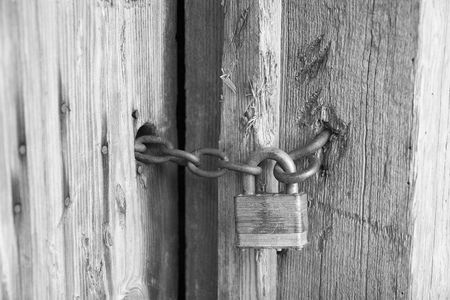Diamonds and Trust Nuggets
April 2015
|
A Story of Power Lost & Reclaimed
(Please see note about this story in upper right column.) My client Janine has a memory of a moment when, as her seven-year-old self, she realized she could run out the door of her Iowa farmhouse when her father was yelling. She crossed the road and a patch of grass then climbed up a tree, where she just sat for a while in what became a safe zone, a space that was simultaneously containing and open, receptive of the elements. She looked all around—branches, grass, field, sunny sky. She felt the wind move through and around her tree. And somehow in that moment, unexpected and unbidden, she had an experience of God that didn't match the rigid, oppressive fundamentalist teachings espoused and expressed ad nauseam in her home and church. The nature-centered God that met her in the tree, carried in the wind itself, held in the greatness of the open sky, present in the matter and texture and solid support of the tree—this force had no language attached to it, no rules, no requirements for merit, no bullshit. She articulated none of this then: only experienced the deep (and it would be lasting) impression of a truth that comes in whole and known and apprehensible, on the personal and universal levels at once. As an adult, Janine moved westward. She became a spiritual seeker exploring various traditions and open to universal concepts of truth that weren't attached to and limited by denomination or even Christianity. As many people raised by fundamentalists (or cults) have experienced, despite much distance from family and a great deal of self-chosen exposure to other worldviews, it took her many years to feel safe (or even okay) in fully shedding the religion: it was taught her as Truth. In life's larger moments, when core fears came up, it could happen that she got sucked in again to her clan's model of flawed, sinful people needing to be reined in by a schizophrenic deity, partly gracious, partly punitive, reliably capricious, whose spokespersons were mean, demanding, hopelessly hypocritical people with ugly secrets hidden behind a posturing that couldn't be exposed, because everyone went along with it and called it good. What made it harder for Janine to extricate herself from the clan was that it was important to her to stay connected to family. She had ongoing phone relationships with many of them, and her defaults for holidays—including chunks of summer, as she was a teacher—automatically placed her in their midst. She wasn't in choice with any of this: it was unquestioned, predetermined, elemental. As an Enneagram Two, Janine was deeply motivated by needing her family members to love her and know without a doubt that she was there to love them, support them, be of service, offer whatever help was needed. They made much of her self-sacrificing, ever-available, giving ways (“Neen is such an angel”), and she thrived on this. Since she never married or had kids (suspect behavior indeed), she became the aunt whose money was made available when other family members couldn't handle some unexpected expense, especially related to the care of the next generation. Still, in the day-to-day of it, Janine lived away from her family, created home that felt safe to her (and beautiful and sweetly containing), handled her love life away from their scrutiny, and pursued activities and friendships that allowed her to develop an eclectic, heart-based, nature-oriented spirituality without dogma. Fast-forward to a time in her forties when Janine was going through a painful break-up (think earth-shattering—betrayal in both heart realm and financial, and a move that involved drastic downsizing). Cut to the scene when she felt panicked about where money would come from to meet her needs. Ay, though she and I had done some work together at this time (we were on hiatus), she forgot to mind the pain body and tend the mind. She lost track of the fact that a sense of urgency is almost always false (curtains on fire might be legit) and that it tends to yield unclear, wrong action. In that moment, distressed and urgent, she called Lea, her cousin's daughter, who owed her a huge chunk of money. Janine had taken out a loan to help the girl get through college, and while they'd agreed Lea would repay her gradually and with no interest, through regular payments, the terms were largely unclear and unenforced: some months no payment happened at all; sometimes it was as low as twenty-five dollars. Janine had definitely contributed to this lack of clarity. (You'll remember “unclear agreements” is one of the power zappers.) Lea counter-panicked in response to Janine's distress and sent her a desperate e-mail drenched in victim mentality. Without full awareness of the tender button she was pushing, Lea accused Janine of not caring about her safety and well-being and putting her in a position where she'd have to work ridiculously harsh hours to pay back money she should never have accepted—and, by the way, she was pregnant so this would happen at the baby's expense. Again, Janine did not pause to mind the pain body and tend the mind. Her break-up (unknown to Lea) was so grossly characterized by uncaring treatment from someone who had professed to love her and whose latest choices placed her in a frightening financial position—a place from which she currently couldn't see how she could comfortably organize her life while rebuilding it—that she couldn't stand feeling this was what she was doing to Lea. (She wasn't.) Further, she was deeply conditioned to see a new baby (the domain of other women in the family, who were making a supposedly more valid feminine contribution) as trumping all—certainly anything she needed or wanted or felt. In the swirl of old beliefs and unquestioned thoughts, she simply swallowed whole (believed) her young cousin's take on things. Guilty before even considering a possibility of innocence, she was horrified that she could be this awful to Lea. In reality, her list of crimes might look something like this: she gave too much too unconsciously over time, so that a sense of furious resentment and feeling ill-used reared its ugly head in a moment life pushed her to her walls. She had made unclear agreements then, when she got scared, tried to demand that this be set right at once. (Not likely to work in most cases. The undoing, too, must run its course.) She had communicated with another human being when she was distressed and feeling urgent, which simply means that she wasn't kind and she didn't create an atmosphere of calm or trust that all would be worked out for the good of all concerned. Further, this way of managing it offered her no solid footing for moving in a powerful way (or in any way) toward a desired outcome. Beyond that, she hadn't done anything wrong. She had certainly committed no monstrous atrocity. She had not been entirely careless toward her cousin over time (far from it). Nothing she'd said or demanded at the peak of her distress required that Lea make self-destructive or baby-harming choices, but in Janine's response to Lea's accusations—which she didn't pause to consider, never mind refute—she entirely agreed to view herself in these terms. It was summertime, so Janine happened to be visiting her family, staying with her brother and his wife, who tended to be the most accepting of her liberal ways. She jumped into her car and drove the country mile to her aunt's house (her aunt being the clearly dominant matriarch of the whole clan, now many years after her husband's death). Janine waited alone there for hours, sobbing and despairing, not yet able to question or in any way clearly look at what she'd been accused of. Once having been seen in a bad light, she was entirely caught up in believing herself to be guilty and to need exoneration. Her whole identity might be summed up at that moment in this way: Janine was selfish, careless of others, unconcerned with the well-being of family. She had proven herself to be ultimately unloving and had, through her carelessness, hysteria, and general base, vile nature, created a rift, perhaps unbridgeable, between herself and someone dear to her, perhaps the whole family. (If you know anything about Enneagram Two types, you know that such a disconnection is the worst. As expressed by the Enneagram Institute, according to the internal make-up of the Two, “You are good or okay if you're loving and close to people.” This state of affairs? `Not good! Not okay.) By the time most of the family gathered after work hours in the matriarchal hub—and gather they did—everyone knew Lea's version of what had happened, and this version was firmly established as what had actually happened. Janine may as well have put a gun to her cousin's head and declared she had to work her fingers to the bone throughout her pregnancy to pay the whole loan back right away. Janine wasn't even thinking about contesting this story, now being treated by the whole clan as objective truth. (Another way to say this is that she didn't harness her power of interpretation, as she wasn't yet aware that anyone was interpreting here—and neither was anyone else.) She was a weeping mess, which gave a clear external marker of her assumed guilt, and the family surrounded her in tough-love mode, offering messages of both utter guilt and ample forgiveness. Yes, she was sinful, and kept making choices over the years that willfully kept her from God's grace. And yes, that grace was still available, ever renewed, and in keeping with that, they forgave her. Not without speeches cataloging her sins, though. Not without harsh, painful statements directed her way—which began, for example, “If you ever treat anyone in my family this way again. …” Janine actually missed what came after that one, because she got sidetracked wondering about family. If she was outside of “my family” in that sentence, whose family was she in? Who were these people and what did she owe them? More important, could she be sure they were telling the truth just because they all agreed to it? She was years into knowing the answer to that one, but had momentarily lost track of it—and lost track of choice—in the thick of current crisis. Janine stopped listening to what was being said and simply moved through the motions as talk led to prayer, as the women moved to gathering food, as things settled back down to normalcy and she was able, finally, to leave placidly. She didn't make a statement of defense or offer another take on the situation—she was just on the edge of understanding anyway—but neither did she leave in tears as she had in last recent memory (a good decade old) of a time they'd all gathered in prayer around her sinful soul. After this scene, Janine went back home earlier than planned and kept much more distance even by phone from her family. When Thanksgiving time rolled around, she chose not to go to Iowa. At Christmastime, she made an agreement with her brother to stay with him for a couple of days and hang out with his nuclear family, but she would go to her aunt's only for the big holiday meal, wouldn't set foot in church with any of them, and would go on to visit a friend in another state during the rest of her holiday time. Her entire family objected to this plan. Someone tried to reel her back in by calling her unforgiving and declaring that she always was one to hold a grudge. Janine felt the sting of that but also remembered to check out the truth of it—and landed squarely in feeling sure that these choices weren't about that. Even if forgiveness was hard for her (it's pretty hard for people in general), even if she'd held grudges in her life (who hasn't?), this was about choosing into her well-being instead of doing what her family expected in order to please them. In short, Janine checked out what others told her about herself and came back to being in good standing with herself. Letting go of her family's approval—not needing to be the angel anymore—was key to Janine's freedom. Note that in regaining power, she had no need to exert power over. She had no need to drag anyone to her camp or stake down their agreement to look at things in a new way with her. She simply had to get her own clarity about who she was and what she was up to, and proceed to make her best choices from that clarity. This is personal power. When she thought of her family members, she blessed them, but she didn't organize herself around what they thought or what they wanted from her or even what they declared they needed. In healing herself, Janine has truly learned how to live (how to keep coming back to) “I release you to your life, and I release myself to mine.” Love & blessings, Jaya |
The story of power to the left is taken from my nearly finished book manuscript, in the section on personal power. Each part of the book draws on people's real stories (mine included) to illustrate the points made. I use stories only with permission and working closely with the person lending his/her/their tale to choose a name and change some facts so that they can't be identified. (There are a few cases of real names used, as when the person created a real business that's described in the writing.)
I decided to send out this story this month in part to invite more. For some time, I've been collecting tiny (brief and even mundane) examples, as well as long (look left!) anecdotes. Most are from clients, but not all, as the point is not my work as a coach but the concepts, live and in action. The gap I'm looking to fill is a story or stories of coming closer to the self. This could include: dropping negative self-talk, being in a kinder, gentler growth process, an instance of self-forgiveness, shifting a perception to see hardship as a gift, anything to do with self-love. Got something for me? It doesn't have to be grand, only true. Shoot me an e-mail at [email protected], or hit reply if you're receiving this in a mailing, or call 607.339.9714. My website offers many ways to contact me! Curious about coaching?
I offer a free 30-minute exploration session by phone or Skype or in person (in Ithaca, NY). To get the free session, just fill out the contact form on my website. I'm (slowly, surely) joyfully working on the Queer Coaching Podcast Project!
I've started taping sessions geared to LGBT types. There's still just one posted (the one that didn't need editing!) on the Inspired Words page of my website. More to come! Meantime, if you'd like to volunteer to be taped doing a coaching session with me, the only requirement is that what you bring or how you talk about it makes clear that you're an LGBT type. Most of the content is universal, so don't feel you need to drum up a super specifically queer issue! Note that you get to hear the podcast before anyone else and if you find you're not comfortable having it aired, we'll drop it, no problem. Contact me if you're interested. For Facebook types, I post most days with an aim to support your growth and healing, inspire you, remind you of what you already know, keep you in touch with the magic, propose that you think big, and cast my vote for you to keep being ever kinder to yourself. Some popular posts from February & March:
What if you treated nothing in life as if it all depended on you? What if you gave everything important you're doing a generous sprinkling of salt? What if, no matter how high the stakes, you simply showed up with clarity doing the part that's yours to do, and let go of all you can't control, like timing and outcome and how others do their part? What if that was always enough? What if, being so present to what's yours and detached from what's not, you could experience life with greater joy, ease, curiosity, awe, humor, creativity, and deep appreciation? That's how I think it works. Sometimes I ask someone to imagine that a panel of angels has come together to set up the PERFECT circumstances in which you can thrive and heal and grow and build muscles where you're weak—but only the muscles you'll need to function beautifully in the life of your dreams. Those circumstances are the ones you're living now. So when it feels harsh, come closer; don't shove it down or run away. Come close believing you're on the point of breakthrough, and all of life wants to support you in your expansion. Your personal power begins with your relationship with yourself. From there, your relationship with others is characterized by power if you can tell them the truth, don't make it your job to take care of them, and let go of manipulating how they see you. There's personal power in a nutshell. (If you want me to bring you the daylong workshop version, contact me!) Are you letting life wow you? Do you remember the magic every day? Are you laughing with people you love and random strangers? Do you pause at least for a moment of wide-eyed head-shaking when the uncanny synchronicity happens? When's the last time you admired the high-wire antics of a squirrel or the grace of a landing crow or a whole convention of them acting like tree ornaments at dusk? I know that challenges and sorrows are real on planet earth. The absurd, hilarious, whimsical, magical, beautiful, amazing, and awe-inspiring are equally real. They deserve your attention. You deserve to give them your attention. |



